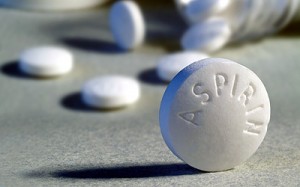 Are you a using aspirin to prevent First Heart Attacks? then you should think twice before prescribing aspirin for primary prevention in high risk patients because recent recommendations by FDA are against its use in prevention of first heart attack.
Are you a using aspirin to prevent First Heart Attacks? then you should think twice before prescribing aspirin for primary prevention in high risk patients because recent recommendations by FDA are against its use in prevention of first heart attack.
NOTE: recommendations are against primary prevention not secondary prevention as there is widespread agreement that for secondary prevention the benefits of aspirin outweigh the risks and should be used to prevent a second heart attack or stroke after an earlier cardiovascular event.
FDA said it had “reviewed the available data and does not believe the evidence supports the general use of aspirin for primary prevention of a heart attack or stroke. In fact, there are serious risks associated with the use of aspirin, including increased risk of bleeding in the stomach and brain.”
Cardiologist Sanjay Kaul (FDA consultant and advisory committee member) said :-
There have been 9 primary prevention trials evaluating the role of aspirin in CVD. Not a single trial has been positive so far. When the data are pooled together in a meta-analysis, there is a small, but statistically significant, benefit which is counterbalanced by an equally small but statistically significant risk of bleeding. On balance, the totality of evidence does not yield a favorable benefit-risk ratio for aspirin in primary prevention. FDA declined to approve aspirin for primary prevention in 2003. Overall, I agree with the FDA’s stance. The tough task ahead for professional societies is to acknowledge the tepid evidentiary support for their guideline recommendations. Equally challenging a task is that patients will have to recalibrate their opinions about aspirin for primary prevention of CV disease.
This announcement by FDA follows FDA’s rejection on Friday of Bayer Healthcare’s decade-old petition requesting approval of aspirin as a primary prevention indication. [PDF of FDA rejection letter].
Aspirin is still widely used for primary prevention. Many physicians, including cardiologists, recommend it for some of their patients. The American Heart Association currently supports the use of aspirin for primary prevention when recommended by a physician in high risk patients.

No comments yet.